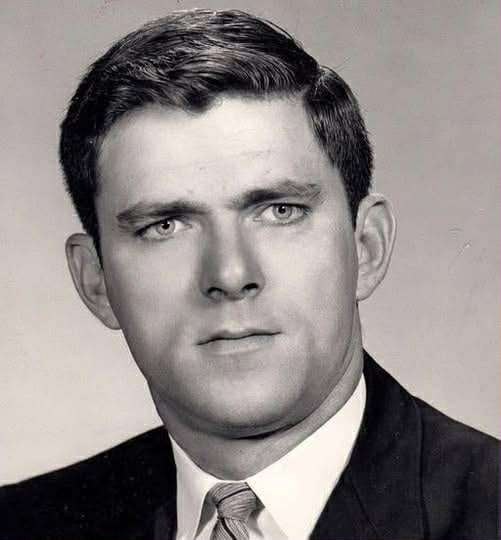The news of Phil Donahue’s passing marks the end of an era in American television history. As a pioneering figure in the realm of daytime talk shows, Donahue’s influence extended far beyond entertainment, shaping the way Americans engaged with social issues, politics, and culture for more than three decades. His death at the age of 88 in his Manhattan home is a significant loss, not only for his family and friends but for the millions of viewers who grew up watching his show, and for the broader media landscape that he helped transform.
In a statement released by his family, they confirmed that Phil Donahue died after a long illness, though they did not specify the exact cause of his passing. Surrounded by loved ones—including his wife of 44 years, actress Marlo Thomas, his children, grandchildren, sister, and his cherished golden retriever, Charlie—he spent his final hours in peaceful companionship. Their presence underscores the deep bonds he maintained with his family, relationships that grounded him amid a career defined by the art of dialogue, empathy, and social consciousness.
Marlo Thomas took to Instagram to express her gratitude for the outpouring of messages of love and support from fans and friends worldwide. She shared her grief openly but also conveyed her intention to step back for a time to care for herself, reflecting a universal truth: losing someone so integral to our lives is both a personal and collective experience that demands time and compassion for healing. Her words remind us that even in loss, there is a shared human journey—one that requires patience, reflection, and the support of community.
Phil Donahue’s legacy is monumental, built not just on the thousands of episodes he hosted but on his groundbreaking approach to television—that of genuinely engaging with his audience and inviting open discussion on social issues that mattered. His show, which later became simply “Donahue,” set a standard for credibility and influence that reshaped daytime TV. Unlike many of his contemporaries, he refused to shy away from controversial topics—be it civil rights, women’s rights, war, or politics—and fought tirelessly for honesty, transparency, and social justice.
What makes Donahue’s contributions even more remarkable is the scope of his influence. Oprah Winfrey, one of the most iconic media figures herself, publicly credited him as a pioneer who proved that daytime talk and women’s engagement deserved serious recognition. In her tribute, she posted a black-and-white photo of herself with him, emphasizing that his work paved the way for her own success and that of countless others. “There wouldn’t have been an Oprah Show without Phil Donahue,” she wrote, paying homage to his trailblazing spirit.
Throughout his career, Donahue interviewed a vast array of influential figures—politicians, celebrities, activists, and ordinary citizens—each episode serving as a platform for dialogue, debate, and awareness. His interview style was often confrontational yet respectful, encouraging honesty and often revealing uncomfortable truths. It’s this fearless commitment to truth and his willingness to challenge societal norms that earned him respect, admiration, and sometimes criticism. Still, his pioneering vision changed the landscape of broadcast media, forcing networks to take social issues seriously and giving voice to the voiceless.
Born in Cleveland in 1935, Phil Donahue’s journey into the world of media began in the late 1950s, during a time when television was still young and evolving. His early work in radio and TV laid the groundwork for what would become his signature style—authentic dialogue and an unapologetic stance on issues of social justice. Moving his show from Ohio to Chicago in 1974, he rebranded his program as simply “Donahue,” which became a household name. Over the course of nearly thirty years, he hosted more than 6,000 episodes—a staggering achievement that reflects his dedication, curiosity, and unwavering commitment to uncovering the truth.
One of the most compelling aspects of Donahue’s legacy is his steadfast support for women’s rights. Starting in the late 1960s, he was an outspoken feminist, advocating for gender equality and challenging societal norms that marginalized women. His show provided a platform for discussions about gender politics, reproductive rights, equal pay, and domestic violence—topics that were often considered taboo at the time. His leadership in this sphere helped reshape public perceptions and contributed to ongoing conversations that continue today.
His death prompts reflection not just on his accomplishments but on what we, as a society, can learn from his life. Phil Donahue showed us that media can be a force for good—an avenue for education, dialogue, and change. He taught us that honesty and compassion can bridge divides, and that an earnest conversation can inspire action and understanding. His fearless tackling of difficult issues serves as a beacon for journalists, broadcasters, and everyday citizens alike, encouraging us all to be more engaged, more honest, and more compassionate.
As we pay tribute to Phil Donahue, we also remember the enduring importance of media that champions truth, fairness, and social progress. His life’s




